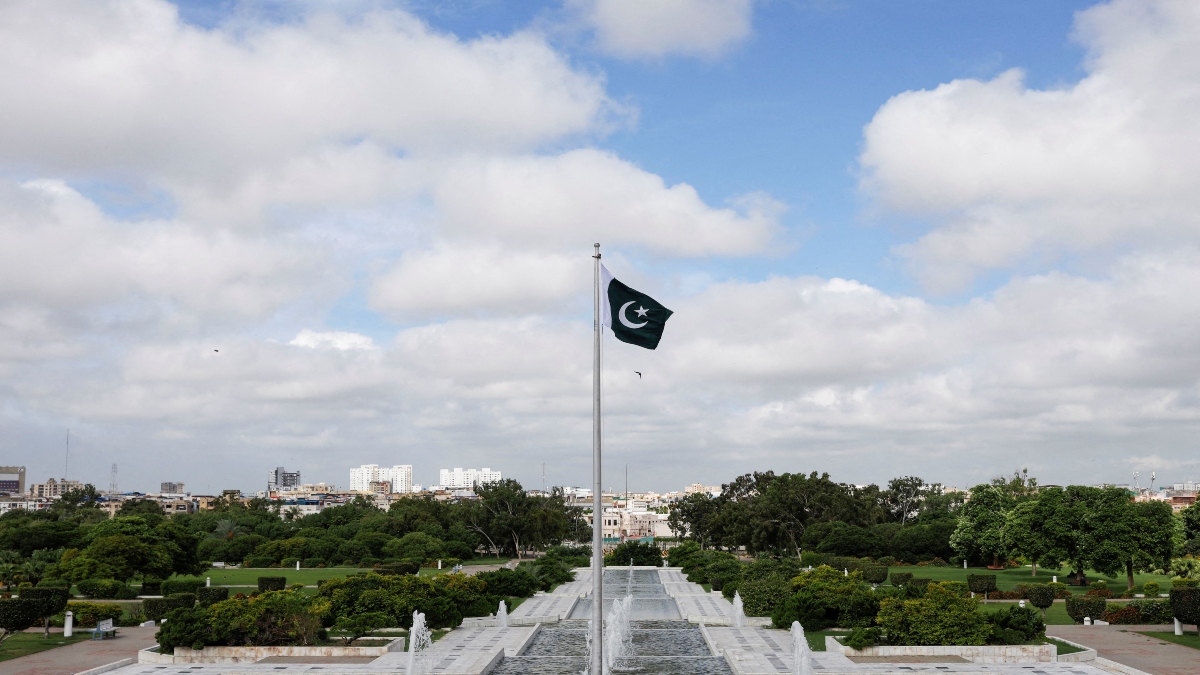Pakistan could be placed back on the Financial Action Task Force’s (FATF) “grey list” for the fourth time in the coming weeks due to its continued failure to curb terror financing, according to a Moneycontrol report, citing sources familiar with the matter.
The global financial watchdog is expected to release an evaluation report by late June or early July which is likely to highlight Pakistan’s shortcomings in addressing terror financing, potentially leading to its reclassification under enhanced monitoring, commonly referred to as the grey list, added the report.
At a FATF plenary held in France’s Strasbourg last week, India reportedly raised concerns over Pakistan’s terror networks and the alleged support they receive from the Pakistani government, further influencing deliberations on Islamabad’s compliance status.
“The exact details and outcome of the meeting is confidential but there is a possibility that Pakistan could be grey listed again,” Moneycontrol quoted one of the sources as saying.
Moneycontrol reported on May 23 that India was preparing to raise Pakistan’s terror record at the FATF meeting, as part of a broader push to highlight Islamabad’s links to terrorism following the April 22 attack in Jammu and Kashmir’s Pahalgam.
In what was one of the deadliest terror attacks in recent years, 26 people, most tourists, were killed in a mass shooting.
According to the Indian government, two of the attackers were Pakistani nationals.
Impact Shorts
More ShortsThe FATF “grey list,” officially termed “jurisdictions under increased monitoring,” includes countries with strategic deficiencies in their frameworks to combat money laundering, terrorist financing, and proliferation financing.
These countries are placed under closer scrutiny by the FATF to ensure they are making measurable progress on agreed action plans.
Pakistan has previously appeared on the grey list three times — in 2008–2009, 2012–2015, and most recently from 2018 to 2022.
While the FATF has already begun monitoring Pakistan’s activities, a formal decision on whether to return the country to the grey list is still pending.
“That decision would be known in the coming weeks,” Moneycontrol quoted a government official as saying.
FATF condemns Pahalgam attack
On June 16, FATF condemned the “brutal terrorist attack” in Pahalgam and said, “This, and other recent attacks, could not occur without money and the means to move funds between terrorist supporters.”
“In addition to setting out the framework for combating terrorist financing, the FATF has enhanced its focus on the effectiveness of measures countries have put in place,” the statement said.
“That is how, through our mutual evaluations, we have identified gaps that need to be addressed. The FATF has developed guidance on terrorist financing risk to support experts that contribute to evaluations of the 200+ jurisdictions in the Global Network,” it added.
Although countries on the grey list are not usually subjected to sanctions or heightened due diligence requirements, their inclusion can still carry significant economic consequences, according to sources, adding, these may include a drop in foreign direct investment and increased compliance costs for businesses due to stricter financial monitoring.
“The June 16 statement is not common for FATF. The attribution to Pulwama indicates India’s diplomatic strength and the recognition of Pakistan’s role in supporting terrorism on the global platform,” another official told Moneycontrol.
“Enhancing focus on ’effectiveness of measures’ put by countries (to counter terror financing) is a change in their way of analysing nations… they never emphasised on effectiveness earlier.”
After the Pahalgam terror attack and Operation Sindoor, India dispatched seven diplomatic delegations to key countries to highlight Pakistan’s continued support for terrorism and reinforce its global stance on counterterrorism.
Meanwhile, the FATF is preparing to release a detailed report on terrorist financing, including misuse of social media, crowdfunding, and virtual assets, according to its June 16 statement.
The report will be based on case studies shared by FATF’s Global Network.
FATF, which meets three times a year, issues “Mutual Evaluation Reports” (MERs) to assess countries’ efforts in combating terror financing and money laundering. Countries failing to meet FATF standards may be placed on the “grey list”, a warning to improve, or the more severe “black list.”
Currently, Myanmar, Iran, and North Korea are blacklisted, with FATF urging members and jurisdictions to impose enhanced due diligence and, in serious cases, countermeasures to protect the global financial system.
Decisions to grey- or blacklist a country are made by consensus. At least four of FATF’s 39 members must oppose the resolution to block it.
Pakistan, previously grey-listed from 2018 to 2022, was removed after FATF found it “compliant” or “largely compliant” with 38 of its 40 recommendations across two key action plans.
With inputs from agencies
)